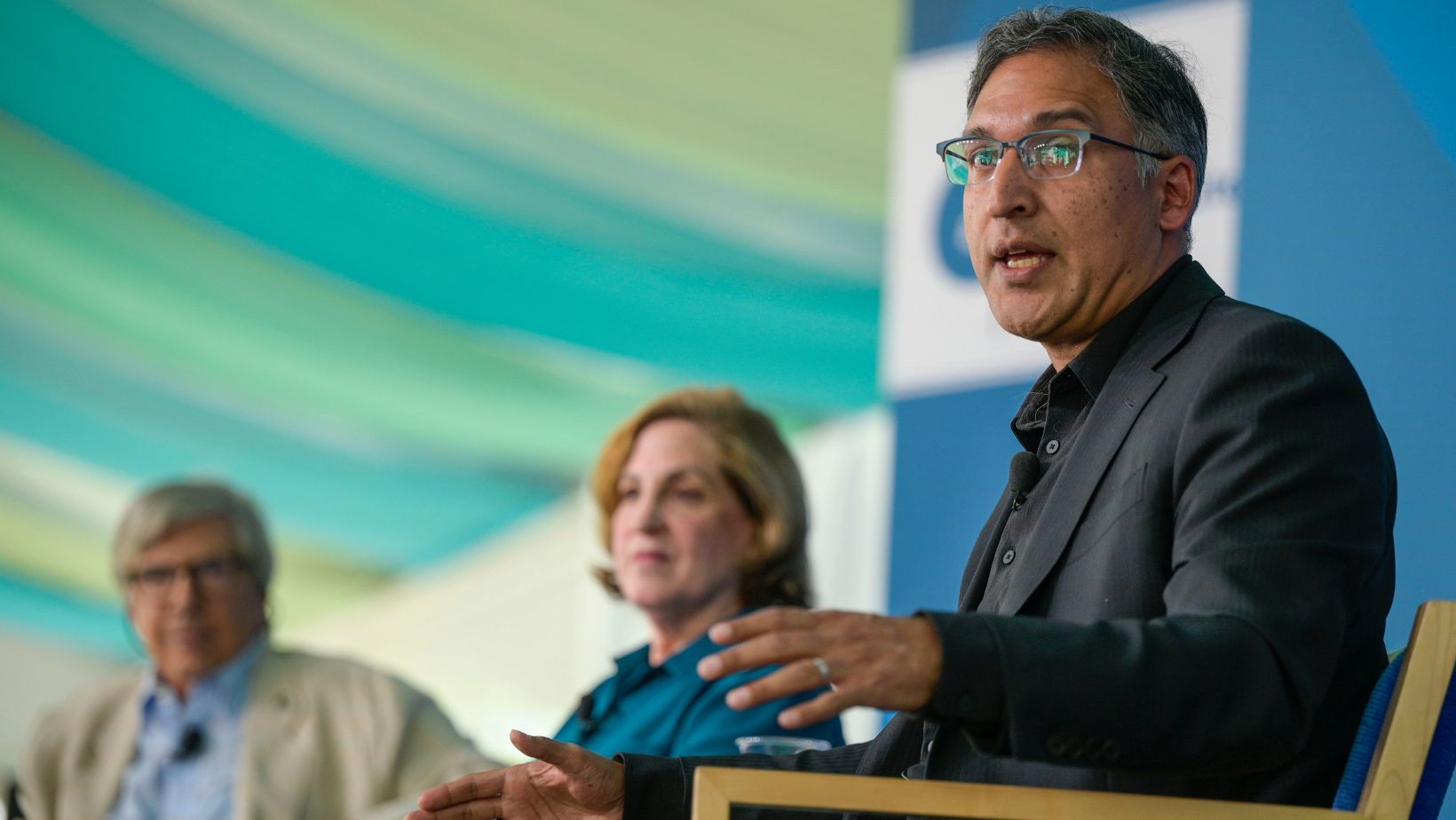As one of its many functions, the Aspen Homeland Security Group is often called upon to give thoughtful counsel to US Secretary of Homeland Security Janet Napolitano.  In preparation for the group’s most recent conversation of the sort, AHSG Executive Director Clark Ervin (photo at left) invited members of the group,as well as a host of guests with leading voices in their diverse fields, to the Institute to discuss how to advise Secretary Napolitano on the numerous issues relating to the Newtown tragedy, including gun violence and mental health.
In preparation for the group’s most recent conversation of the sort, AHSG Executive Director Clark Ervin (photo at left) invited members of the group,as well as a host of guests with leading voices in their diverse fields, to the Institute to discuss how to advise Secretary Napolitano on the numerous issues relating to the Newtown tragedy, including gun violence and mental health.
Ranging from top pediatric medical professionals to a former director of the CIA and FBI, participants brought a broad range of experience to the roundtable discussion. President of the Brady Campaign and Center to Prevent Gun Violence Dan Gross shared polling data by Republican strategist Frank Lutz indicating that 74% of National Rifle Association members favor required background checks, while 82% of all gun owners and 92% of all Americans agree.
While acknowledging that the support of the American people in getting “all guns out of some people’s hands” is vital, the group sought to drill down on the ability of background checks to prevent mass shootings, as well as gun-related deaths such as those “on the street corners of Chicago.” Additionally, Children’s National Medical Center President and CEO Kurt Newman, MD brought mental health into focus, citing the statistic that one in five children are affected by some mental health issue, and yet it often takes eight to 10 years for the individual to be properly diagnosed.
Laura Gutermuth Anthony, PhD, Associate Director of the Center for Autism Spectrum Disorders, explained that research shows desensitization to violence from entertainment media, particularly first-person shooter video games, eventually results in the decline of “helping behavior” in children. She suggested this is the first sign that aggression is forthcoming, and yet, by re-teaching nurturing behavior, the shift can be normalized. Additionally, American Academy of Child and Adolescent Psychiatry President-Elect Paramjit T. Joshi, MD said that studies show individuals with mental illness who are properly treated have no greater risk of gun violence than those without mental illness. It is those who the safety net has not caught that pose the greatest threat.
The attendees—which included Richard Ben-Veniste, a former commissioner of the 9/11 Commission—cited the work of the landmark commission and its unanimous adoption of security measures as a model to use for further consideration of the gun violence issue. Public education campaigns, such as those for bike helmets, seat belt use and anti-smoking initiatives, and the use of validators including clergy members, celebrities and grassroots organizations were also held up as prototypes for outreach. The group agreed that it was of grave importance to broadcast the mental health indicators for when a firearm could greatly compromise the safety of those in the home and beyond.
The next day, the AHSG met for a closed conversation with Secretary Napolitano following a public forum hosted by the Aspen Institute and the Woodrow Wilson International Center for Scholars entitled “From Cyber to Immigration, Terrorism to Disasters: Securing America in the Next Administration.” Ervin and the group included the gun violence issue, and their myriad of suggestions regarding access to guns, mental health issues, the saturation of violence in the media and the potential effects of ostracized youth in their recommendations to the Department of Homeland Security.

